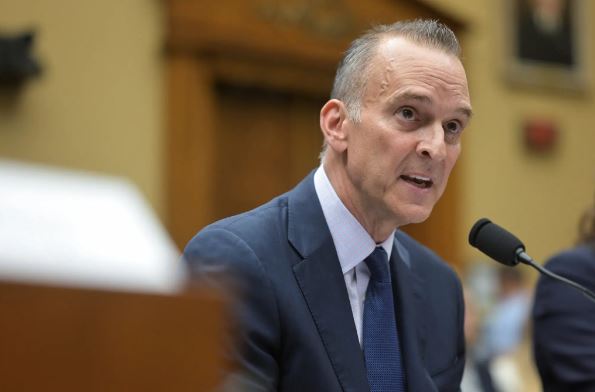In the final weeks of Donald J. Trump’s presidency, he quietly signed a bipartisan bill into law that significantly expanded U.S. powers to combat doping in international sports, including events like the Olympics. The law, known as the Rodchenkov Act, allows the U.S. Justice Department to criminally prosecute coaches, trainers, doctors, and sports officials worldwide who facilitate doping, even if the events are held outside the United States.
Nearly four years after its enactment, the law has sparked controversy among global sports authorities, leading to tensions as the Summer Olympics approach in Paris. The Justice Department is investigating whether Chinese anti-doping officials and the World Anti-Doping Agency (WADA) covered up positive tests of nearly two dozen Chinese swimmers, some of whom won medals at the previous Olympics and are set to compete in Paris.
The International Olympic Committee (IOC) reacted strongly, announcing it had awarded the 2034 Winter Olympics to Salt Lake City but included a condition: the decision could be rescinded if the U.S. continues actions perceived as undermining WADA’s authority. This unusual stipulation has heightened tensions between the IOC and WADA on one side and the U.S. Anti-Doping Agency (USADA) and its allies on the other.
Travis Tygart, head of USADA, has been a vocal critic of WADA, arguing that it has not done enough to hold dopers accountable. He played a key role in promoting the Rodchenkov Act, which was named after Grigory Rodchenkov, a former Russian lab director turned whistle-blower who exposed a state-sponsored doping program. The law specifically targets those who help athletes dope and applies to events involving U.S. sponsors, American broadcasters, or American athletes.
Critics of the Rodchenkov Act, including WADA and the IOC, argue that it represents American overreach and could lead to a fragmented global anti-doping effort if other countries enact similar laws. WADA President Witold Banka warned of a potential “mess” if countries like China, Russia, or Germany adopt their own anti-doping laws, potentially leading to conflicting regulations and enforcement.
The law has faced opposition from WADA and the IOC, both of which have lobbied against it. The situation became more heated after the Justice Department subpoenaed Brent Nowicki, the CEO of swimming’s governing body, as part of the investigation into the Chinese swimmers. The subpoena and subsequent investigation have raised concerns among international sports officials about the potential legal risks of traveling to the United States.
The IOC’s decision to tie the award of the 2034 Winter Games to the U.S.’s compliance with international anti-doping norms has been met with bipartisan anger in Congress and criticism from USADA. Governor Spencer J. Cox of Utah expressed concern at the recent IOC meeting, noting that many officials feared legal repercussions if they traveled to the U.S.
The Rodchenkov Act’s first conviction came in 2023, when Eric Lira, a therapist in El Paso, was convicted of providing drugs to Nigerian sprinter Blessing Okagbare before the Tokyo Olympics. The case highlighted the act’s potential to hold enablers accountable, but also underscored the broader implications of U.S. involvement in global anti-doping efforts.
The controversy over the Rodchenkov Act and the ongoing U.S. investigation into the Chinese swimmers underscore the complexities of international sports governance and the challenges of ensuring a level playing field. As the Paris Olympics approach, the debate over the reach and role of U.S. law in global sports continues, raising questions about the future of anti-doping enforcement and the integrity of international competitions.

